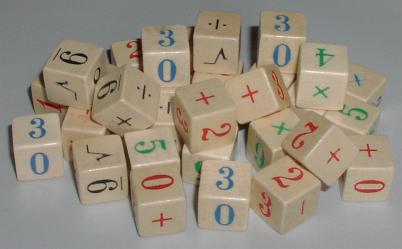Impossible equations

On the 21st of April, the Dutch prime minister Mark Rutte held a press conference to announce changes to the measures against the corona virus. In his introduction, he emphasized many times the ‘duivelse dilemma’s’ (devilish dilemmas) he had faced in deciding the appropriate course of action. I sympathised completely. Weighing up the pressures of the nation against the pressures of the virus is a fiendishly difficult problem, with all the unknowns involved, and I would not like to be placed in the driving seat in this situation. Decide to continue the lockdown and you could be faced with a desperate entrepreneur whose company has gone bankrupt and who has been evicted from their house for not paying the rent. Relax the rules and you may be forced to witness the grief of those who have lost a loved one. There is no magical solution that will stop the virus without any costs. It’s a situation where you can never win.
But then, Mark Rutte said something that grated. ‘The freedom of one person’, he stated, ‘cannot be at the cost of the health of another’.
On the face of it, it seems a sentiment that no one could argue with. But while the devil may well be in dilemmas, he is certainly in the details. Because once we test this simple equation in practice, it’s clear that we are all regularly willing to sacrifice the health of others for our own freedom. Take travelling by car, for example. Last year, 661 people died on the Dutch roads. We could save all those lives in a heartbeat, by simply closing the roads. Thinking about it a bit further, closing the roads would also cost lives. What about a seriously ill person who has to be rushed to the hospital? But ultimately, I suspect that a suggestion to prevent traffic deaths by closing the roads would not be met by a sober comparison of lives lost in each scenario, but would be centred far more on the loss of liberty and economic prosperity. Which of us can imagine giving up the car? It’s the same story with pollution. The freedom of industry to make money, of individuals to travel and to buy (and throw away) cheap products, is at the cost of those who become ill due to pollution. And smoking is the ultimate example of where freedom – and economic interests – are placed ahead of the health of the population.
My usual position in such debates is to be on the side of supporting health against economic interests and individual freedoms. Surely, then, I should welcome Rutte’s statement? For once, health is being put first.
Except that I don’t think that health is being placed first. The trouble is that these simplistic choices don’t actually exist. You can’t put health on one side of the scale, and freedom and economics on the other. They are inextricably intertwined.
Take away economic prosperity, and you have more poverty – a notorious killer. Extreme poverty is listed by the WHO itself as the number one killer in the world. We are in a more fortunate position in developed countries, but it is still well known that poverty has a negative effect on health. What about all those people who lose their jobs or businesses, and will not be able to pay for proper food, for proper health care – or who may even find the situation so desperate that they feel there is no other choice than to end it all? Not to mention the longer-term effects on children who grow up in poverty.
Lack of freedom, too, has its effect on health. Experts are sounding the alarm over the effect on mental health of the lockdown. While Rutte trivializes the desire to see an end to the lockdown as people’s ‘impatience’ to be able to go to the hairdresser and sit on terraces, the lockdown’s limits on freedom mean much more. The stress and strain of parents and children who have been cooped up together for weeks, attempting to cram work, school and leisure between the same four walls with the same few faces, all under the tension of not knowing when it will end or how much worse it can get. The loneliness of those living alone who are only seeing their friends and family via a computer screen, who haven’t felt the touch of another human being since March. The confusion of people in sheltered accommodation who don’t understand why their essential support structure of daily activities has been swept away and their family and friends can’t visit. Or the distress of an elderly inhabitant of a care home, who wonders if they will even see their family again in this world.
The effects are not limited to mental health. After all that painstaking effort to get children outside and exercising, we are now actively promoting that they sit on the sofa and play computer games. In the meantime, stressed adults are turning to more comfort food and alcohol. Colleagues talk about the ‘corona kilos’, and my personal experience is that swapping a 40 minute bike ride to work for sitting stressed-out behind my computer with easy access to a cupboard full of chocolate is not doing me any good. This may seem trivial, until you remember that a large proportion of those in intensive care with the corona virus are obese or overweight, so we are storing up a new supply of vulnerable patients for a potential future pandemic. But these problems are nothing compared to the terrible situation faced by those for whom their home is a very dangerous place to be due to domestic violence or abuse.
The choice ‘health or freedom/economics’ therefore ignores the fact that health also weighs in on the freedom/economics side of the scale. But there is another problem. This choice is always offered in the context of combating the corona virus. The ‘health’ that is promoted is a very specific type of health, namely ‘not getting the corona virus’. Reducing deaths from corona, reducing the intensive care beds occupied by corona patients, limiting corona infections. It doesn’t include other forms of health at all, and many of these are being seriously neglected. The care for cancer patients has been affected, and cancer organisations are concerned that a drop in the number of cancer diagnoses means people with symptoms are not daring to go to their doctor. Operations are being delayed. Preventative health care has stopped. We have no idea of the magnitude of the health time bomb that is ticking away.
I certainly don’t want to downplay the devastating effect of the corona virus, nor am I necessarily arguing for lockdown measures to be relaxed. I don’t have the expertise for that, plus there’s evidence from history to argue for the benefits of a strict approach, despite its negative side-effects. My deep concern is that those in charge appear to see only a part of the picture, and behave as if nothing else is important. In focusing only on the corona virus, far from putting our health first, they may be putting our health at risk in other ways. I am deeply relieved that voices are being raised to point out that the economy is also essential to lives. In the Netherlands, even the medical experts advising the government recommend that any potential relaxation of the anti-corona measures should be examined from a broader perspective. Cabinet members and the ‘safety regions’ who coordinate regional responses to emergencies also argue for a broader committee that includes disciplines such as economics and psychology. Unfortunately, Rutte still insists any such committee should be secondary to the medical advisors.

CC BY-SA 3.0
The task of tackling the corona virus is a horrendously complex one. But at least it has a simple goal – reduce the number of deaths from corona – which is immediate and reasonably measurable. Add economics, social and psychological effects into the mix and that simple target becomes an impossibly complicated equation. How do you balance deaths from corona now against potential future deaths from poverty, from depression, from obesity, from medical conditions that went untreated? I have every sympathy for those faced with this overwhelming tangle. and their desire to just get on with it, without the distraction of people criticizing their approach and pointing out the serious problems that the anti-corona measures are causing. But ignoring the complexity doesn’t eliminate it, it simply stores up trouble for later. One article summed this up perfectly: As in the conundrum of the swerving driver, do you avoid one death now, but is it at the cost of five down the road?
It may well be that, once all factors are weighed up, the best course of action is to maintain a strict lockdown. I would feel far better about such an outcome if I knew that all the important factors had been considered. It would also help if the true costs were acknowledged, rather than behaving as if the lockdown means nothing more than foregoing trivial pleasures like a night out with the boys. No patronising admonitions to curb our impatience to go out to play, but sober explanations that, yes, we understand that this is asking a lot, yes, we know that many people will suffer, but, all things taken into account, this is the best way forward. Acknowledging the damage being done is also the essential first step to finding out how to alleviate it. The lockdown is described as an ‘intelligent lockdown’. I would like to be treated as an intelligent adult when it is explained to me.
Freedom and financial security don’t just enrich life, they sustain it. Until those in power demonstrate that they understand this, I don’t have much faith in their ability to make the right decisions in this crisis. In Hollywood films, such as Dave, the only thing required to change government policy is an open, honest speech from the heart. This is brilliantly spoofed in Strike, in which the Hollywood take on the UK 1980s miners’ strike ends happily, after Arthur Scargill rides to the Houses of Parliament on his motorbike to deliver an impassioned speech, winning over the government to the miners’ point of view. In real life, as the real miners discovered, it’s frustratingly difficult to have an effect on government policy. Right now, we are in the middle of the biggest crisis since WWII, that encompasses our entire lives, yet it seems impossible to have any influence. There are no elections or referendums, joining a protest risks being lumped in with the 5G conspiracy theorists and those who believe corona is a hoax, and making a fuss on social media gives no guarantee that anyone important will ever hear what you say. In these circumstances, a touch of Hollywood magic to reach the hearts and minds of our leaders would be very welcome.


